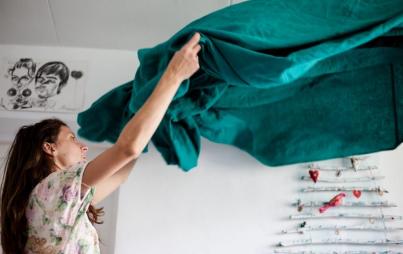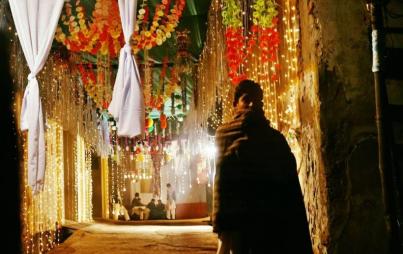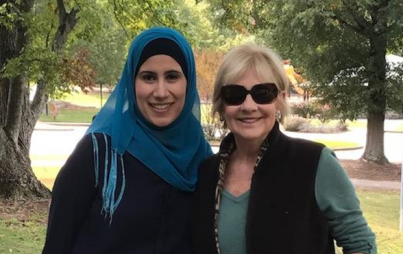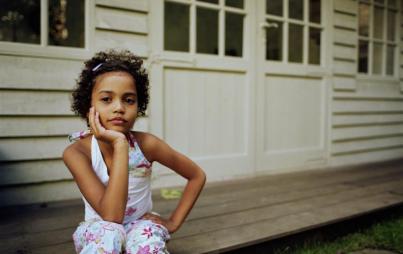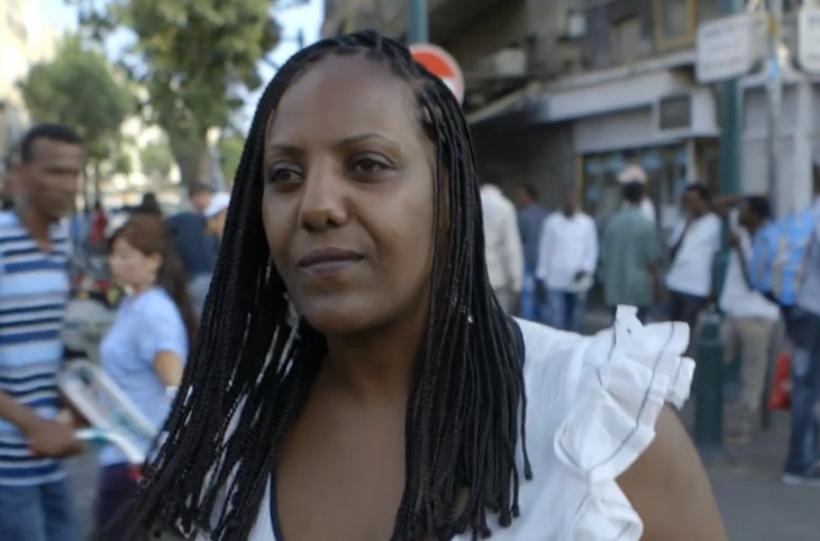
The night before our interview, Meron Estefanos’ phone rings in the middle of the night. A boat of 320 Eritrean refugees fleeing Egypt’s coast into the Mediterranean Sea has started to sink and all are soon to perish if no one acts now. Meron reaches out to the Italian Navy and sends a distress signal, but to what avail?
This is one of thousands of phone calls Meron has had with those fleeing their Eritrean homeland in search of a better life. Meron is an Eritrean living in Sweden, where she was raised. She did not know of the severity of the suffering of her people until she returned to the country later in life, where she saw firsthand the trapped and seemingly hopeless situation in which the country’s citizens are held.
Forced entry into the army, the virtual nonexistence of real economic opportunity and the complete repression of free speech are just a few reasons why 5,000 Eritreans flee the country every month, many of whom will be kidnapped and held captive by corrupt Bedouins in Egypt. Hostages are only returned once ransoms—often exceeding $20,000—are paid. If they evade kidnappers, the refugees can be shot on-site per Egypt’s border patrol policy. Meron has corresponded with thousands of Eritreans trapped in the hellish purgatories that are the torture camps of Sinai as they try to find any way to escape the unimaginable conditions.
Those captured in Egypt are often en route to Israel, where they have no citizenship and are labeled “infiltrators," the term carved on unnamed graves at numerous Israeli cemeteries. The Eritreans who do make it safely to Israel often face a life of isolation; homelessness is common. 
With the recent construction of a fence along Israel’s southern border, there has been a decline in Eritreans attempting to seek asylum; to avoid a corresponding drop in kidnapping revenue, refugee camps in Sudan have increasingly been raided, with captives re-routed to Sinai.
I first learned of the plight of the Eritrean people and Meron’s work while watching a recent segment on RT (the international news network). An activist and radio host, she decided to help the people of Eritrea by connecting them with each other through broadcasting her phone calls with refugees from her home in Sweden. She provides a voice of compassion and support to many, and has become a symbol of hope and unity in an otherwise chaotic and overwhelming situation.
I was able to speak with Meron about the ways in which she is affecting real change, how she maintains her strength in the face of such tragedy, and what we can do to help the people of Eritrea.
What does a typical day in your life look like?
I’m a single mother of two. I have two boys, one is 13 and one is five. I wake up early and send off one to school and the other to daycare. I get my phone calls throughout the day—as long as I don’t turn off my phone I get phone calls. I receive calls from refugees who have all kinds of problems, whether it be those who have been kidnapped or tortured. Last night I received a phone call from refugees in the middle of the Mediterranean Sea. Their boat was in distress and they needed help, so I had to take the call and then contact the Italian Navy and give them their location and inform them that there are 320 people in the Mediterranean Sea about to drown.
How do these refugees come to connect with you and how are you able to take action?
I am a radio journalist so I have my own program every Thursday called “Voices of Eritrean Refugees." I am broadcasting my program to refugees who have hardship. I try to tell them that leaving your country is not the solution to whatever problem you have. I come from Eritrea—we have one of the most repressive regimes in the world, where everyone has forced national service from the age of 17 to 50. The regime basically owns your life until you are 50 years old—that’s for women and for men. That means you don’t have time to get married, to have children, go to universities, you’re just in the military from the age of 17 until you are 50. About 5,000 people flee every month from my country and everyone takes advantage of that. They get kidnapped because [the kidnappers] know they have no government that will fight for them. To our government, we are just traitors who left Eritrea. Wherever they are, people take advantage of them. Our government, they never really cared and they don’t stand for anyone who has left the country. They could care less what happens to you.
I could give you just one example, where 368 people drowned and they were all from Eritrea. Our government did not have a mourning day for those who died in Lampedusa. While the whole world was mourning their deaths, our country did nothing.
What happens to the Eritreans who stay and fulfill their mandatory service? What is life like afterward?
There is nothing. Not only that, there is no private media—all our journalists are in prison. So when it comes to freedom of speech, we are the bottom of the list for the last 10 or 11 years. When it comes to freedom of religion it is the same, we are at the bottom of the list. So there really is no freedom of anything at all. The young people know their fate. By the age of 12 you have already made up your mind that in a year or two you are going to leave the country. One generation has already been lost and the second generation is fleeing from the country thinking, "I’m going to be a soldier in a few years, it’s better to leave now."
Was there a specific moment when you knew you wanted to dedicate your life to this work?
It was not really planned. I grew up here in Sweden, so I grew up in a democratic country and I had a good life that my people don’t. I moved to Eritrea thinking everything was fine and when I went back I saw that I have many more rights than those who have sweated and bled for the country. Because I had Swedish citizenship I could move freely where I wanted, whereas my friends, who were just like me, had only given their time to the military. That made me think, "you know, if I grew up here, this would have been my fate." I could not just accept that this was the way people were living, so I decided to move back to Sweden to begin opposing the government openly. But still I couldn’t reach the people because I wasn't allowed to go back to my country. For five or six years I was a political activist. But nothing changed, and I couldn't cheat myself thinking that I’m helping my people when I was unable to because they were too far away. So I decided to help the refugees who are fleeing because I can reach them. That's how it all started.

How do we take action? Is there a way we can tangibly affect change?
This problem is still going on, so there is an Avaaz petition asking the government to shut down the torture camps. There is another link asking Obama to pressure Egypt to shut down the torture camps. Egypt has been refusing to deal with the issue. We’ve been trying for years, but they won't listen. What I primarily do now is travel to different places and ask for their help in applying pressure to Egypt. The U.S. gives a lot of aid to Egypt, so that could be used to pressure the government.
How do you maintain your strength in the face of such sadness?
I’m too busy to think about it. A lot of people say, "aren't you depressed?" because I talk to people while they’re being tortured and I deal with a lot of death—people that I get close to, people that I talk to on a daily basis—and then I’ll have to be the one to notify their families of their deaths. People say, "we just listened to one of your programs and got so depressed. How do you do that everyday?" But I get inspired by [the victims’] strength. They are in hell and yet they are fighting to leave. That is very inspirational to me. They are the ones who are suffering. I am just listening. My problem compared to theirs is nothing.
When all this is over I’m going to need a psychologist to help me deal, but for now I’m too busy to think about it. I don’t have free time. Whatever free time I have at home I spend with my kids and when they’re off to bed I’m off to work until I’m tired and I go to bed. 
What is the one thing that connects us all?
It’s compassion, I think. Dealing with all kinds of cruelty on a daily basis can make you give up on human beings. And then suddenly you can meet a Norwegian woman who doesn’t know you who will offer to give you $30,000 to help free a hostage who she doesn’t know, who's not related to her. Then you realize there is goodness and badness in everyone, regardless of what color or what religion or where we come from.
If you could give one message to every Eritrean, what would you say?
Enough is enough. It’s time to deal with the root cause. Even though my people are being tortured and killed in Egypt and persecuted in Israel and dying in the Mediterranean Sea, I don’t blame anyone else. The regime in Eritrea is causing us to go through all this suffering so I think Eritreans need to stand up and fight the root cause.
-----------------------
To learn more about Meron, watch for the upcoming release of the feature-length documentary, Sound of Torture, which won the first-ever Israeli category award at the recent Docaviv International Documentary Film Festival in Tel Aviv. Directed by Keren Shayo, the film encapsulates the trauma of Eritrean refugees.


